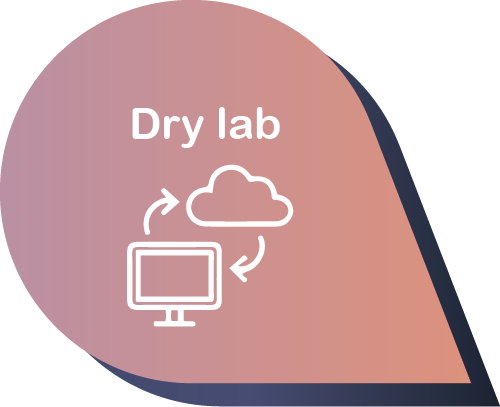
While switching to digital working formats can be harnessed to increase sustainability, the digital world and dry lab work tools can still contribute a huge CO₂ footprint, in terms of energy consumption or minerals needed for equipment production.
From using power save mode instead of screen savers and sending an email with links to files in clouds instead of attachments, to regular cleaning up of your data and using FAIR data principles, there are many areas where dry labs can smarten up to reduce CO₂ emissions.
• Store files in clouds and send links to shared documents instead of attachments in emails
• Work with your research group and institute to have a smart and clear data management strategy
• Work using FAIR data principles
•Regularly doing clean ups for unnecessary duplicates of data or archiving to cold storage
• Using newer and smarter algorithms
• Promote good computer use- shutting down, power save mode, not using screen savers, low light setting
• Buy from companies who have clear sustainable manifestos in their production line of equipment
Dry labs
Background info
• The carbon footprint of Bioinformatics – Molecular Biology and Evolution
• Green Algorithms: Quantifying the Carbon Footprint of Computation – Advanced Science
• Towards the Systematic Reporting of the Energy and Carbon Footprints of Machine Learning – Journal of Machine Learning Research
• The FAIR Guiding Principles for scientific data management and stewardship – Nature
• How to stop data centres from gobbling up the world’s electricity – Nature
• Green Intentions – Radboud UMC
Practical guides and documents
• Ten simple rules to make your computing more environmentally sustainable – Plos Computational Biology
• FAIR data management strategy and tools – NWO
• Research Data Management – Science Europe
• Sustainable Research Data – Science Europe
• The environmental impact of computational biology webinar – EMBL-EBI
• Digital clean up day – Resources for individuals and whole organisations
Stickers & Posters
• Power Saver poster – University of Edinburgh
